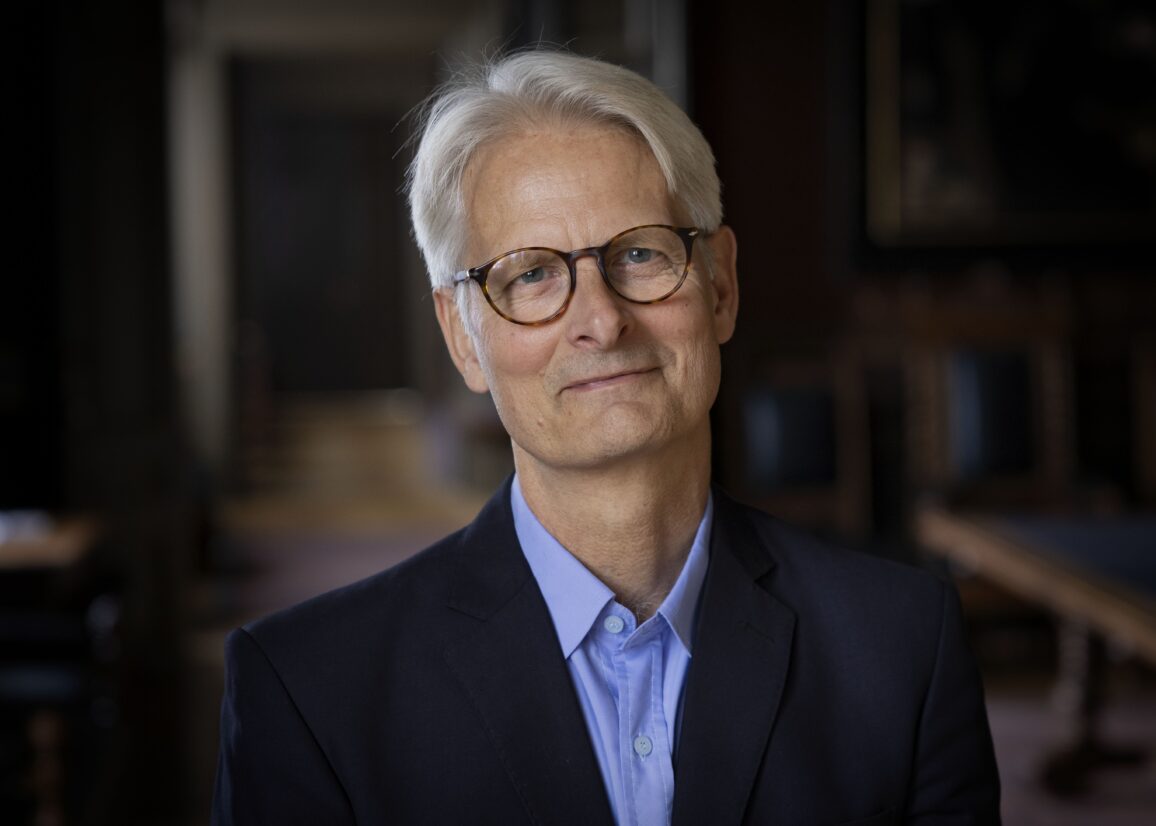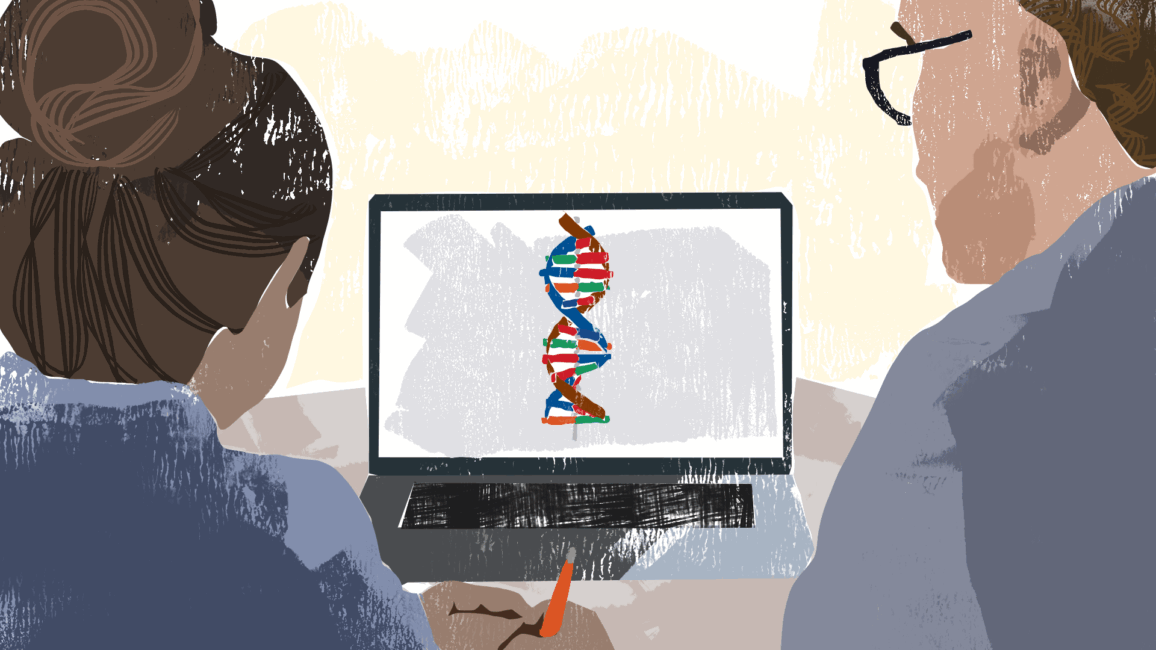EP PerMed awards the title of “Best Practice” (BP) in Personalised Medicine to Genomic Medicine Sweden (GMS) for their national implementation of whole-genome and -transcriptome sequencing in childhood cancer in Sweden (GMS Childhood Cancer).
GMS Childhood Cancer is a unique nationwide project based on a bottom-up initiative enhancing collaboration between different disciplines like pathology, clinical genetics, bioinformaticians, and clinicians in paediatric oncology in a very valuable and productive way.
Gustaf Ljungman, Professor of Paediatrics, Senior consultant in Paediatric Oncology and leader of the clinical group in the GMS Childhood Cancer project.

What is this Best Practice about?
GMS Childhood Cancer is dedicated to ensuring that every child diagnosed with cancer in Sweden has access to the most accurate and personalised diagnostics and treatments available.
The project is funded by The Swedish Childhood Cancer Fund (Barncancerfonden), the Swedish Innovation Agency – Vinnova and the Ministry of Health and Social Affairs of Sweden.
By leveraging the principles of precision medicine, the initiative aims to improve survival rates and minimise long-term side effects. Since May 2024, Sweden has become one of the first countries in the world to offer whole-genome sequencing (WGS) and whole-transcriptome sequencing (WTS) as part of the standard of care at diagnosis for all children with cancer. This implementation builds on the success of a national pilot project and the subsequent recommendation by the Swedish Association for Paediatric Haematology and Oncology.
The pilot project, which ran from 2020 to 2024, introduced WGS at the time of diagnosis for all paediatric cancer cases. Both tumour and normal (healthy) tissue samples were analysed to identify genetic changes that can inform diagnosis, prognosis, and treatment decisions. After excluding cases where tissue samples were insufficient – an expected limitation – approximately 85% of cases are anticipated to undergo WGS of both tumour and normal tissue.
Between January 2021 and March 2022, 117 children with solid tumours and central nervous system tumours were enrolled in the study, and their tumours were analysed using WGS. In around 50% of cases, clinically relevant genetic alterations were identified that clarified diagnostic subgroups, informed prognosis, or revealed treatment targets (Wadensten et al, JCO Precision Oncology 2023). In another 40%, the initial diagnosis was confirmed. In a few cases, genomic findings led to a complete change in diagnosis and treatment. Some children became eligible for targeted cancer therapies, while others were found to have cancer predisposition syndromes requiring specialised care and long-term follow-up. Final analysis and compilation of data from the entire pilot project are currently underway.
To date (October 2025), more than 800 genomes have been analysed, with the number expected to exceed 1,000 by the end of 2025. These results, along with relevant clinical data, are securely stored – following informed consent from patients and families – in the national Childhood Tumour Biobank. The genomic data can be linked with detailed clinical information from the Swedish Childhood Cancer Registry, with contributions from all six national childhood cancer centres.

A new digital platform, BrainChild, is currently in development to integrate large-scale datasets, including WGS, treatment outcomes, survival data, and digital imaging, into a single system. The platform will feature a secure layer for approved research projects and a public layer presenting national summary statistics.
Building on this foundation, GMS Childhood Cancer is collaborating with NHS England and Genomics England through the GENE-BRIDGE project to combine genomic data from Sweden and the UK. This joint effort aims to enable cross-national studies on larger and more diverse patient populations, while also advancing tools for international data integration. As part of an expanded collaboration, France Médecine Génomique 2025 has also joined the initiative. Together, the three countries are expected to compile data from over 1,300 children with cancer who have undergone WGS by the end of 2025. Next steps include developing an open-access resource for real-time tracking of precision medicine in paediatric oncology, establishing legal frameworks for secure cross-border data sharing, ensuring sustainable long-term funding, and adapting this model for other diseases and healthcare systems.
Through these efforts, GMS Childhood Cancer not only enhances care for children in Sweden but also contributes to a global movement to make precision medicine accessible to all children with cancer, no matter where they live.
What is the impact of this initiative for patients, for the healthcare system and for the advancement of personalised medicine?
- For patients:
- earlier, more accurate diagnoses;
- more accurate risk stratification;
- identification of targeted treatments and germline conditions; reduced side effects.
- For healthcare systems:
- more efficient clinical trial planning, better resource allocation, and informed policy decisions through real-time population-level statistics.
- In addition, the project has driven the development of multidisciplinary molecular tumour boards.
- While a full health economic analysis is still underway, the BrainChild data platform is anticipated to contribute to cost reductions by enabling more accurate treatment matching and minimising unnecessary interventions.
- For personalised medicine:
- demonstration of scalable, GDPR-compliant cross-border data integration;
- improved AI model training through large, harmonised datasets;
- as well as a model for collaboration and implementation nationwide.
How does GMS Childhood Cancer collaborate with academia, private partners and/or health care providers in order to ensure its implementation in clinical practice and in the healthcare system?

GMS Childhood Cancer actively collaborates with all medical faculties and university hospitals across Sweden, as well as international partners, including the UK and France, to integrate evidence-based research into the development and refinement of its framework. Academic institutions contribute cutting-edge knowledge in paediatric oncology diagnostics, treatment, and care processes, enabling continuous updates to the project based on the latest scientific evidence.
Through joint research projects and clinical studies, GMS Childhood Cancer is designed to reflect the real-world needs and opportunities for improvement in paediatric cancer care. Researchers are also involved in the education and mentoring of healthcare professionals, helping to disseminate knowledge about the project’s functionality, practical implementation, and expected clinical impact.
Successful implementation of GMS Childhood Cancer in clinical practice depends on close collaboration with paediatric oncology clinics, specialist physicians, nurses, and other healthcare professionals across all regions. GMS Childhood Cancer facilitates structured dialogues and workshops to adapt it to existing clinical workflows and to ensure alignment with both medical and organisational requirements. Through targeted education and ongoing feedback loops, GMS Childhood Cancer is integrated into routine care with a strong focus on improving patient flow, care quality, and monitoring of treatment outcomes.
In addition, GMS Childhood Cancer works in close partnership with the Swedish Childhood Cancer Fund, the largest non-profit organisation in Sweden dedicated to funding childhood cancer research and providing support to affected families. This collaboration ensures alignment of research efforts, promotes data sharing, and supports the development of patient-centered care models.
Does this project address ethical considerations, data protection and gender and diversity aspects?
The project proactively addresses GDPR compliance, ethical considerations (including Swedish ethical approval 2020-03827), anonymisation protocols for cross-border data sharing, and the development of data processing agreements.
Project teams are structured to promote gender equality and diversity. Data is analysed using gender-disaggregated metrics to identify and address any disparities in care delivery or outcomes. The project also advances health equity by ensuring equal access to advanced diagnostics, treatments, and clinical trials for all children, regardless of background.
Does GMS Childhood Cancer have the potential to be scalable and/or transferable to another field or healthcare system?
The introduction of whole-genome and whole-transcriptome sequencing at diagnosis for all children with cancer in Sweden can serve as a model for other diseases, particularly in areas such as logistics, data sharing, and the development of molecular tumour boards for multidisciplinary evaluation of genomic findings and their clinical implications.
Moreover, GMS Childhood Cancer represents a significant resource for identifying new treatment alternatives in childhood cancer, accelerating progress toward more effective, personalised therapies.

